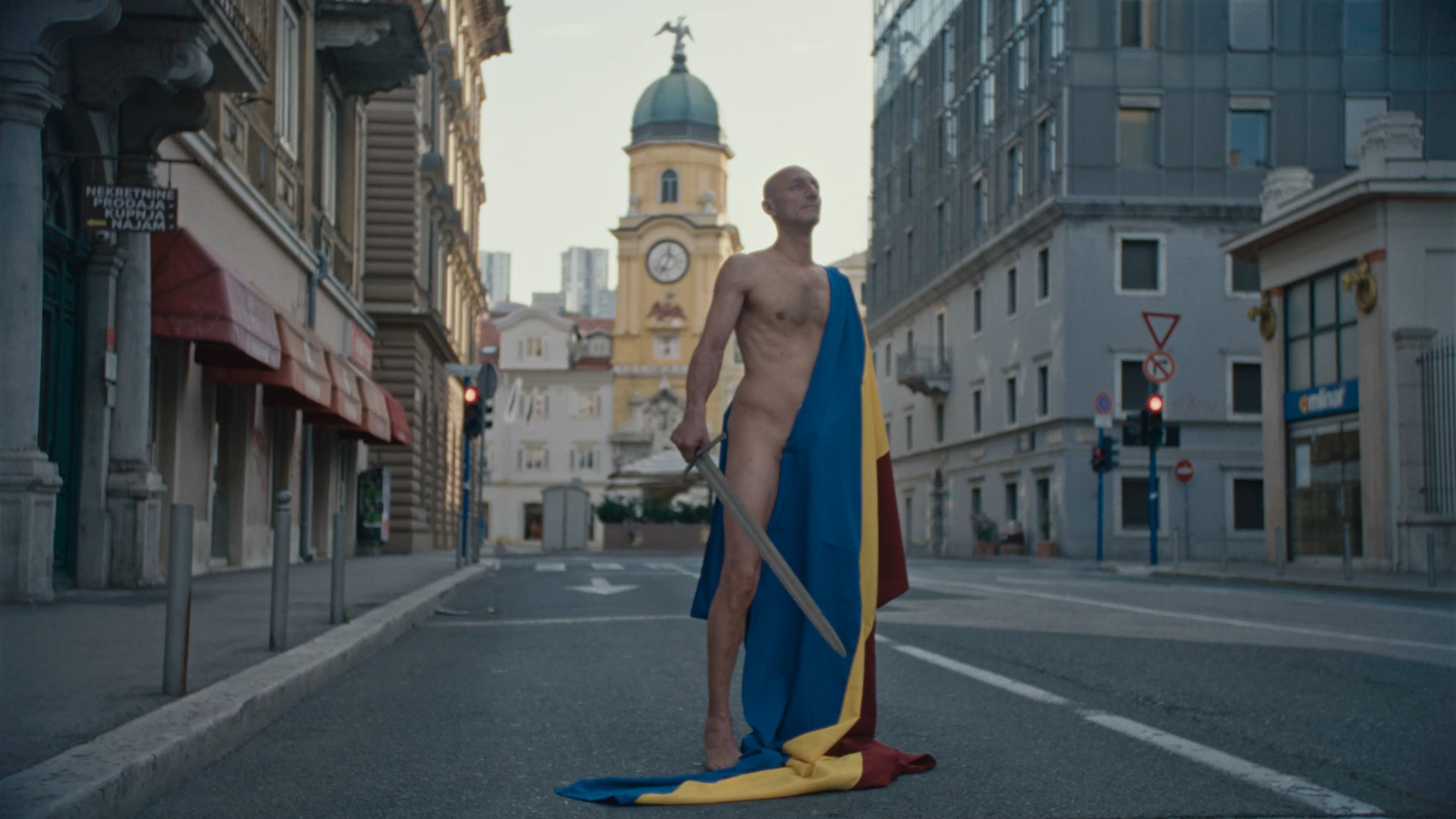


Igor Bezinovic: Fiume o Morte

This film totally blew my mind. Its freshness, its originality, its playfulness, giving information so it’s never dull and using the cinema language wonderfully. Archive – moving images and photos to make history alive, citizens of Rijeka today, all centered around a mad poet Gabriele d’Annunzio…
I have always wanted to visit that area, where Italy and Slovenia and Croatia meet each other, Rijeka is now on my list, indeed! And this film reminds me of what documentaries can do, taking us back in time, from today, in an entertaining manner. In other words it is a great film, why… read the director’s impressive introduction, says a lot:
“By making this film I wanted to get to know the past of my hometown Rijeka/Fiume, but also to get to understand it’s present state from a new perspective. During this process I’ve met hundreds of my fellow citizens who wanted to work on the film in front of the camera or behind it. I’ve met drivers, politicians, dustbin collectors, archivists, doormen, cooks, musicians, professors, translators and waiters who all had ideas about what this film should be like. I’ve also met historians of all kinds, from those who saw D’Annunzio as the crazier version of Mussolini to the ones who saw him as the Italian Che Guevara.
Besides meeting new people I’ve also read thousands and thousands of pages on D’Annunzio in Fiume, and while doing it I was not only gathering facts but was also shaping my own political ideas.
One idea, however, stayed clear to me all the way. That idea is formulated in a political pamphlet published in Fiume in 1922, soon after D’Annunzio’s departure: “Long live Fiume, free and independent from any kind of rescuers, liberators and protectors!”.
I made a film with my fellow citizens and for my fellow citizens, building a chronological story that we’ll be able, I hope, to retell to new generations. I also hope that our film will help the audiences outside of Rijeka think about how much they know about the histories of their own hometowns and about how these histories got remembered and retold.
In his lesser-known essay from 1960, Pier Paolo Pasolini calls D’Annunzio’s occupation of Fiume a “pagliacciata narcisistica”, “a narcissistic escapade”: D’Annunzio saw Fiume as a personal playground, as a place where he could experiment and practice everything that came to his mind.
By making this film I wanted to keep D’Annunzio’s idea of Rijeka/Fiume as a playground, but this time the citizens of Rijeka are the ones who are playing.”
Croatia, Italy, Slovenia, 2024, 113 mins.